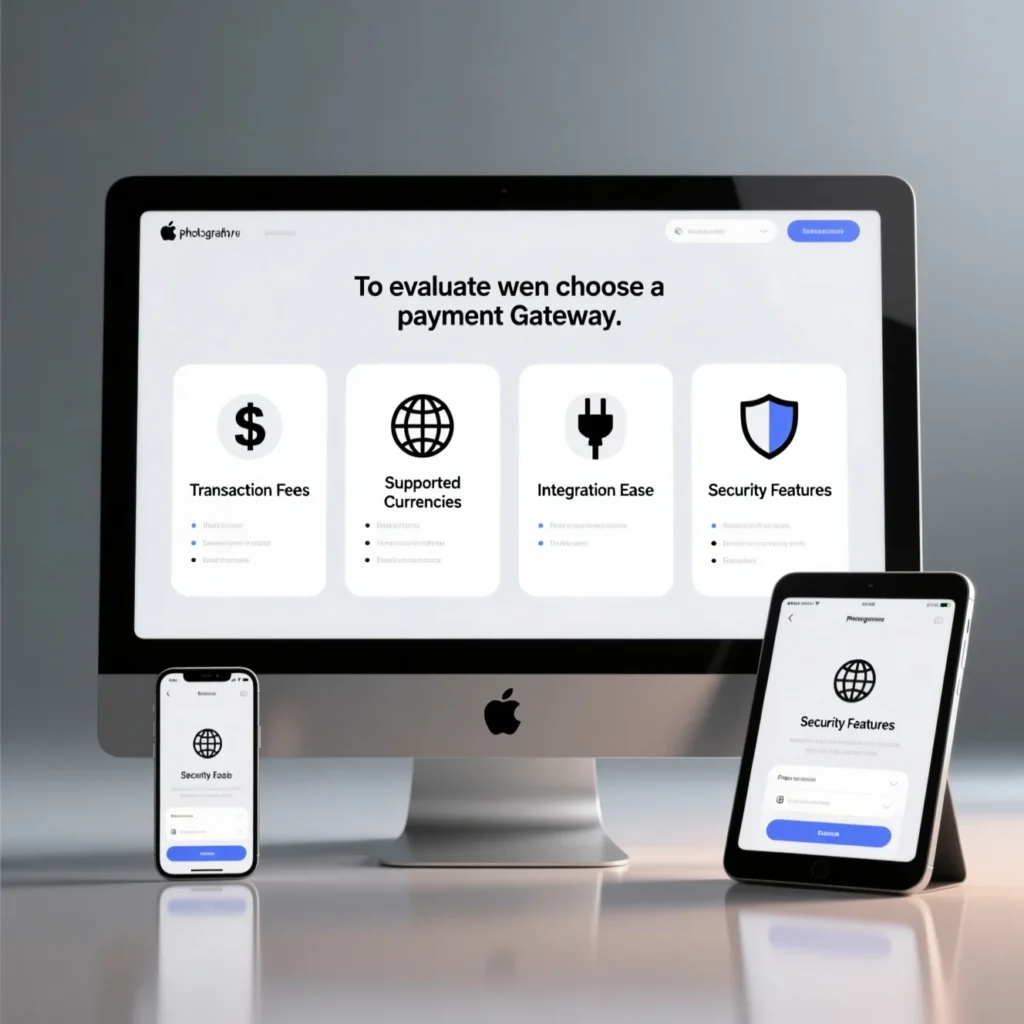Choosing how to choose a payment gateway for online store might sound like a tech-task, but here’s the simple truth: the best online payment gateway is the one that combines low cost, trustworthiness, seamless checkout and matches your business growth. If you pick the wrong one, you’ll lose sales, suffer high fees, deal with nasty support issues. In this article, we’ll walk through the key factors, personal insights from real setups, and help you pick the right fit for your site.
What does a payment gateway actually do?
A payment gateway is the bridge between a customer’s payment (card, wallet) and your online store’s banking/processing system. It captures payment data securely, sends it off for approval, returns the result, and helps settle the funds.
Here’s a basic flow:
- Customer enters payment details at checkout.
- Gateway encrypts the data and sends it to the acquiring bank/processor.
- Issuing bank approves or declines the payment.
- Gateway reports the result to your store and funds are transferred (after settlement) to your account.
Types of gateways: hosted/redirect, embedded/integrated, API/fully custom.
Why the choice matters for your online store
- Conversion & checkout experience: If the payment step is clunky, customers will abandon.
- Costs & margins: Fees eat into profit, especially if you’re scaling.
- Trust & security: Customers trust known payment methods and expect data protection.
- Scalability: As your store grows (more volume, more countries, more currencies), your gateway must keep up.
- Support & reliability: When things go wrong it’s usually payment related—good support matters.

Key factors to evaluate when choosing a payment gateway
Based on real world e commerce setup experience, here are the criteria that matter most.
Fees & pricing model
- Check per-transaction fee, monthly fee, setup costs, currency conversion fees.
- Example: a store I worked on switched gateways and went from ~2.9%+€0.25 per transaction to ~2.4%—that difference added up over hundreds of sales.
- Hidden costs: Setup fee, termination fee, “chargeback” fee.
Integration & platform compatibility
- Does the gateway have a plugin for your CMS/e-commerce platform (Shopify, WooCommerce, Magento)?
- If you need custom checkout or mobile app support, does it have a robust API?
- I once saw a client pick a gateway lacking a good plugin—they ended up spending 2 days on custom coding when a plugin version would have saved hours.
Security, compliance & fraud protection
- Ensure the gateway is PCI DSS compliant, supports encryption, tokenization.
- Fraud-protection features matter: 3D Secure, AVS, CVV checks, fraud dashboards.
- Real experience: A merchant noticed a cluster of failed payment attempts from same IP range; their gateway’s dashboard let them block those right away—which avoided many bad payments.
Settlement speed & cash-flow
- How quickly do the funds reach your bank account after the sale? Some gateways do next-day, others take multiple days.
- For small businesses, cash-flow matters. If you need funds quickly to buy inventory or pay suppliers, faster payout is better.
- Also check hold policies (if the gateway holds funds in case of chargeback risk).
Global & local features
- If you sell internationally: multi-currency support, local card support, local language checkout.
- Does your audience use different payment methods (digital wallets, mobile pay)? Gateway should support them.
- Example: I ran a store selling to EU/UK & US; switching to a gateway that supported local UK cards boosted conversion in UK by ~7%.
UX and customer experience
- Checkout flow should be smooth, ideally on your site (not a scary redirect).
- Mobile checkout must be good (many users shop on phones).
- Gateway performance and downtime matter: if payment step fails, you lose trust and sales.
Real example: our merchant’s gateway switch story
Here’s a practical anecdote: my client ran an online gadget store with ~300 orders/day. Using Gateway A they had average decline rate of ~4%. They switched to Gateway B which had: lower fees, better UK card acceptance, and mobile-optimized checkout. After the switch: decline rate dropped to ~2.3%, fees dropped ~0.6% per transaction, and UK conversion improved. They did bear some integration cost (1 day developer work) but the return was clear in two months.
Take-aways:
- Selecting the gateway improved not just cost but conversion.
- Real metrics changed: decline rate, cost per sale, regional performance.
- Integration trade-off (time) can be worth it if the gains are measurable.
Which is the best online payment gateway for you? (Recommendation)
There’s no one-size-fits-all. But here’s how you decide for your store:
- New/small store, low volume, few countries: Choose a gateway with quick setup, simple plugin, flat-rate pricing.
- Growing store, higher volume, multi-region: Choose a gateway with multi-currency support, APIs, lower fees as volume rises.
- Mobile-heavy, global audience: Prioritize mobile UX, local payment methods, fast settlement, strong analytics.
- Low-volume but premium products: Even at low volume, checkout friction kills sales—smooth UX and trust factors matter more than tiny fee savings.
Some of the widely-recommended players (as of 2025) include those with strong global reach, good integrations. (Note: always confirm regional availability, fees, features).

In summary: when wondering which is the best online payment gateway, ask yourself:
- Does it meet your business size, region, customer base?
- Are fees and settlement terms acceptable?
- Is the checkout experience smooth and trusted by users?
- Can it scale as you grow?
Pick a gateway that fits your current needs but gives some room to grow. Skip over-complex options if you’re small; skip under-powered ones if you plan to scale. The right choice will reduce friction, lower cost, increase conversion—and frankly help you sleep better at night.
Ready to choose your payment gateway? Comment below with your business type (online store, services, geographical region) and I’ll help you shortlist 2-3 providers that match your needs perfectly. Also, subscribe to get updates when I review plugins and compare payment gateways for different platforms.
